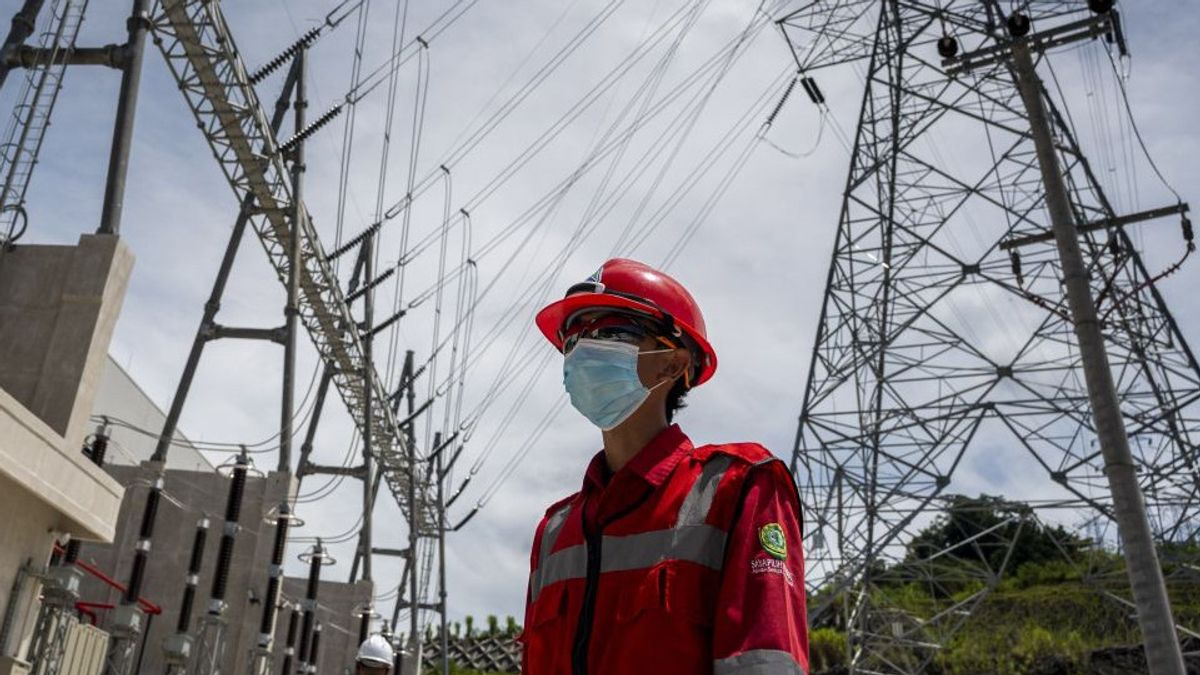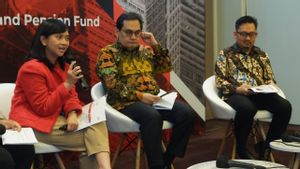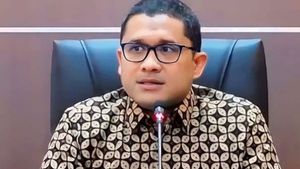JAKARTA - The Institute for Essential Services Reform (IESR) and the Ford Foundation in Indonesia have called on the Indonesian government's importance of prioritizing the principle of justice in energy transition efforts in Indonesia, especially in the Just Energy Transition Partnership (JETP) partnership.
JETP is an innovative financing mechanism aimed at accelerating the country-led energy transition from fossil fuels, including coal, to renewable energy sources. JETP essentially connects financial packages consisting of concession financing (soft loans) and grants from donor countries, with energy transition initiatives in Southern countries.
In a report launched digitally by the IESR and the Ford Foundation today, it was stated that the promised JETP funding was not sufficient to cover the entire transition process. Instead, these funds serve as initial funding to catalyze and mobilize other funding sources.
The report highlights the results and recommendations from The JETP Convention, Exchange and Learning from South Africa, Indonesia, and Vietnam which were held on June 25-28, 2023 in Jakarta. The event was held by the Ford Foundation, Institute for Essential Services Reform (IESR), and the African Climate Foundation.
"Because JETP's initial funding has a time limit, it is important to set a reasonable achievement and project that can be achieved within the agreed period and develop strategies to utilize other funding sources to cover costs to achieve the 2030 target," said Fabby Tumiwa, IESR Executive Director, in his statement, Wednesday, September 20.
Fabby also added that financing instruments such as soft loans, commercial loans, equity, collateral funds, grants, and other instruments must be carefully studied so that debt traces' occur in the future.
"The government must continue to advocate for grants and larger soft loans to achieve agreed targets without adding to the burden on the recipient country," said Fabby.
This was emphasized by Edo Mahendra, Head of the JETP Indonesia Secretariat when he was a speaker at a panel discussion entitled 'Safeguarding the Just in Just Energy Transition Partnerships (JETP) and Other Emerging Climate Finance Models' at the Climate Week event on September 18, 2023 in New York, United States.
"The highest funding components still come from commercial loans and investments with non-concession interest rates. Therefore, it is important to build partnerships and collaborations between governments, philanthropic organizations, and the private sector," said Edo.
The Ford Foundation in Indonesia views that philanthropy has an important role in supporting the principle of justice both through the government and directly to the affected communities. They have the ability to act faster than the government and bridge the gap between the government and society. Philanthropy can also support human resource development by providing technical assistance, capacity building, training, and knowledge exchange.
SEE ALSO:
The principle of justice must also be applied to mitigate the impact of the energy transition on the community. Support for alternative socio-economic initiatives in these fields is important so that the idea of justice sided with all community groups
This includes providing increased skills in the transition from fossil fuels to renewable energy sources, educating and helping local governments to adapt their economic development strategies and plans for the long term, as well as creating funding dedicated to overcoming the impact of the transition from coal use.
The shift from fossil fuels to low-carbon resources not only has an impact on the economy at the local level but also at the regional or even national level. People living in fossil fuel-dependent areas must adapt to the new environment, and adapt their skills and knowledge that may be difficult to do in a short time.
Alexander Irwan, Regional Director of the Ford Foundation in Indonesia, said that the implementation of JETP must meet the basic principles of the element of justice.
"Social justice elements must be included in discussions and transition plans. The concept of justice must be at the center of attention, ensuring a fair transition is inclusive for all groups or communities, particularly workers, children, women, and local communities who rely heavily on fossil fuel supply chains," said Alex.
The English, Chinese, Japanese, Arabic, and French versions are automatically generated by the AI. So there may still be inaccuracies in translating, please always see Indonesian as our main language. (system supported by DigitalSiber.id)
















